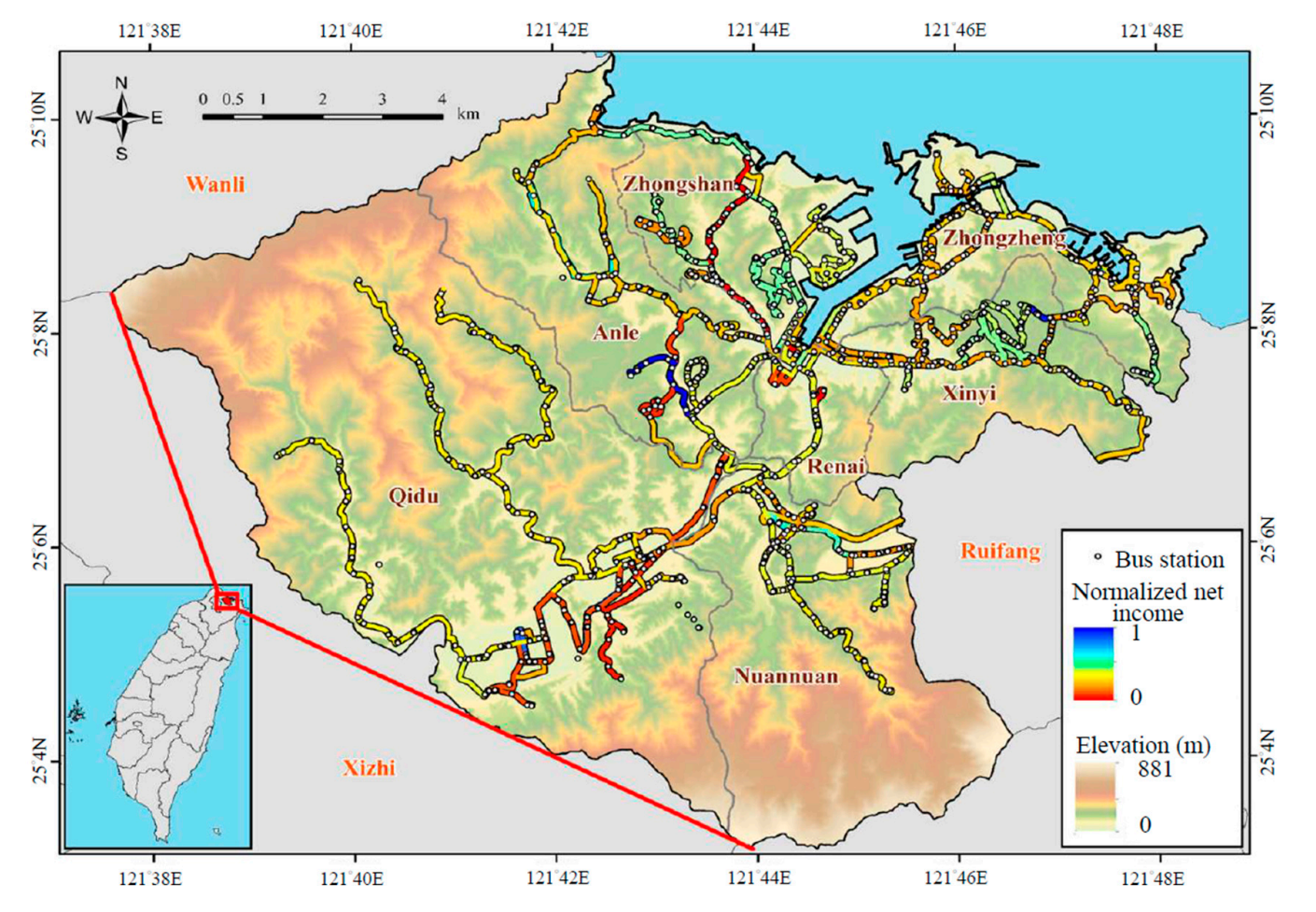Abstract
Public transport bus services often experience financial inefficiencies due to high oper-
ational costs and unbalanced service allocation. To address these challenges, this study presents a machine learning-based framework aimed at optimizing financial and opera-tional performance in public bus systems. A dataset comprising 57 routes including cost,
service, and ridership data was analyzed to identify key factors correlated with net revenue.
These features were integrated into multiple predictive models, among which support vector regression (SVR) with a Gaussian kernel and Bayesian optimization achieved the
highest accuracy (R2 = 0.99), indicating excellent generalization capability. Scenario simula-
tions using the trained SVR model evaluated the effects of service and cost adjustments.
Results showed that cutting personnel costs had the most significant effect on net income,
followed by administrative and financial expenses. These findings highlight the impor-
tance of data-driven strategies such as route reallocation and workforce optimization. The
proposed framework offers transit agencies a robust tool for improving efficiency and
ensuring financial sustainability.
Keywords: public transport; machine learning; support vector regression; optimization;
net revenue
https://doi.org/10.3390/math13203249
https://www.mdpi.com/2227-7390/13/20/3249 國立臺灣海洋大學顧承宇副校長團隊以AI打造「智慧公車營運模型」助基隆市提升公車效率與財務永續,實現智慧交通新里程碑 基隆市,2025年10月 — 國立臺灣海洋大學河海工程學系研究團隊運用人工智慧技術,成功開發出一套可預測並優化公車營運績效的「AI智慧公車營運決策模型」,為公營運輸單位提供具體的數據化決策依據。研究成果發表於《Mathematics》國際期刊,展現臺灣在智慧交通與永續運輸管理領域的創新能量。 ________________________________________ 🚍 AI精準預測,破解公車虧損難題 基隆市公車系統長期受限於地形與成本結構,營運虧損嚴重。研究團隊蒐集57條市區公車路線、19項營運與財務指標,運用支援向量回歸(Support Vector Regression, SVR)模型進行分析。 結果顯示,該AI模型可精準預測各路線淨收益,準確率高達99%(R²=0.99),並能模擬不同營運策略對財務表現的影響。 ________________________________________ ⚙️ 智慧模擬揭示最有效策略 研究團隊以基隆市為案例,進行兩大模擬分析: 1. 服務頻率調整 o 增加高績效路線班次、減少低績效路線服務。 o 結果:整體系統淨收益明顯提升,虧損路線獲得改善。 2. 成本結構優化 o 模擬三大成本類別(車輛維修、人事、行政財務)不同削減幅度。 o 最佳策略為:人事與行政成本降低20%、車輛維修費降低10%。 o 成效:可大幅提升整體財務穩定度。 ________________________________________ 💡 打造永續且高效的智慧運輸決策工具 研究指出,人事成本對營運淨收益影響最大,顯示人力配置優化是公車轉虧為盈的關鍵。 團隊建立的AI模型不僅能用於財務預測,更可作為政策模擬與決策支援系統(Decision Support System, DSS),協助地方政府與運輸單位在有限資源下達成最佳化運行。 ________________________________________ 🎯 學術與社會貢獻 成果不僅可作為基隆市公共運輸轉型的依據,也為全臺各地公營運輸機構提供AI導入的成功範例,展現海洋大學在智慧城市與交通永續領域的研發實力。 ________________________________________ 📖 研究出處 Cheng-Yu Ku, Chih-Yu Liu*, and Ting-Yuan Wu (2025), " AI-Driven Optimization for Efficient Public Bus Operations", Mathematics 2025, 13, 3249, pp. 1-20. (SCIE, IF 2.2, Q1, 29/483 (6% JIF) in MATHEMATICS, JCR, 2024) https://doi.org/10.3390/math13203249
